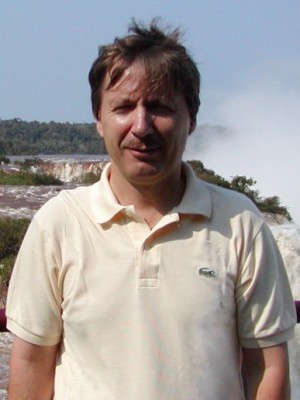abstract
Controlling ferroelectric switching in Mg doped lithium niobate (Mg: LN) is of fundamental importance for optical device and domain wall electronics applications that require precise domain patterns. Stable ferroelectric switching has been previously observed in undoped LN layers above proton exchanged (PE) phases that exhibit reduced polarization, whereas PE layers have been found to inhibit lateral domain growth. Here, Mg doping, which is known to significantly alter ferroelectric switching properties including coercive field and switching currents, is shown to inhibit domain nucleation and stability in Mg: LN above buried PE phases that allow for precise ferroelectric patterning via domain growth control. Furthermore, piezoresponse force microscopy (PFM) and switching spectroscopy PFM reveal that the voltage at which polarization switches from the "up" to the "down" state increases with increasing thickness in pure Mg: LN, whereas the voltage required for stable back switching to the original "up" state does not exhibit this thickness dependence. This behavior is consistent with the presence of an internal frozen defect field. The inhibition of domain nucleation above PE interfaces, observed in this study, is a phenomenon that occurs in Mg: LN but not in undoped samples and is mainly ascribed to a remaining frozen polarization in the PE phase that opposes polarization reversal. This reduced frozen depolarization field in the PE phase also influences the depolarization field of the Mg: LN layer above due to the presence of uncompensated polarization charge at the PE-Mg: LN boundary. These alterations in internal electric fields within the sample cause long-range lattice distortions in Mg: LN via electromechanical coupling, which were corroborated with complimentary Raman measurements. (C) 2015 AIP Publishing LLC.
keywords
EXCHANGED WAVE-GUIDES; PIEZORESPONSE FORCE MICROSCOPY; LINBO3 CRYSTALS; RAMAN-SPECTROSCOPY; SPECTRA; FABRICATION; SCATTERING; INVERSION; PHONONS; PHASES
subject category
Physics
authors
Neumayer, SM; Ivanov, IN; Manzo, M; Kholkin, AL; Gallo, K; Rodriguez, BJ
our authors
acknowledgements
This research was funded by the European Commission within FP7 Marie Curie Initial Training Network


